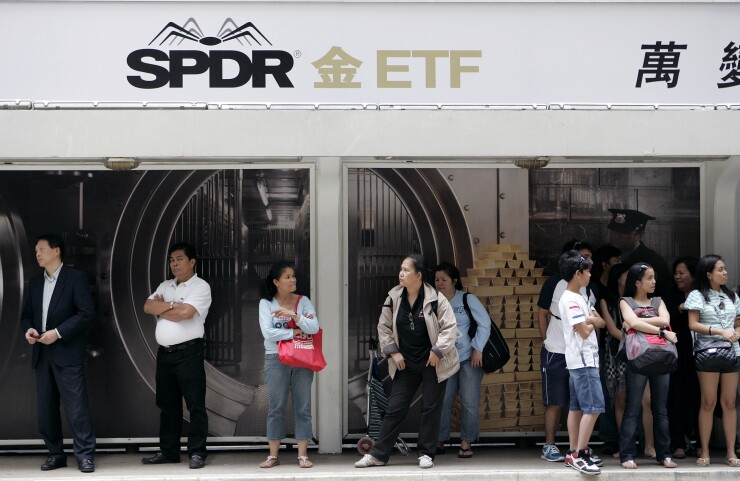A biotechnology ETF is losing cash as investor hopes for merger-fueled growth continue to be dashed. Investors pulled a record $365 million from the $9.3 billion SPDR S&P Biotech ETF (XBI) last week.
-
The company is evaluating ways to package both its quantitative and active strategies into the funds, according to a person familiar with the matter.
September 25 -
To encourage a budding relationship with younger clients, firms must provide new offerings and more guidance about how to invest, Schwab says.
September 18 -
Clients will flock to digital advice, but conditions favor incumbent firms, a study found.
September 18
The equal-weighted nature of XBI’s underlying portfolio emphasizes small- and micro-cap shares, giving the fund greater exposure to developing companies than similar ETFs, which are heavy on larger, established pharmaceutical stocks.

One of the reasons investors could be fleeing is the dearth of M&A in the sector, said Jared Holz, a health care strategist at Jefferies. Despite a strong start to the year, rising valuations for small- and mid-cap biotech businesses have deterred drugmakers from takeovers.
Investors hoping for a deals revival may have seen their hopes dashed last week when several companies, including Amgen, reiterated that valuations are stretched. U.S. large-cap pharma companies have $440 billion in dry powder to deploy toward takeovers or return to shareholders, according to estimates by Goldman Sachs in July.
In addition, the filing of an initial public offering by Allogene Therapeutics on Friday spooked investors in a new class of promising cancer therapies, known as CAR-Ts. The South San Francisco-based biotech, led by the former management of Kite Pharma, is working on the next generation of cell therapies that could threaten existing CAR-Ts made by firms such as Gilead Sciences and Celgene.





